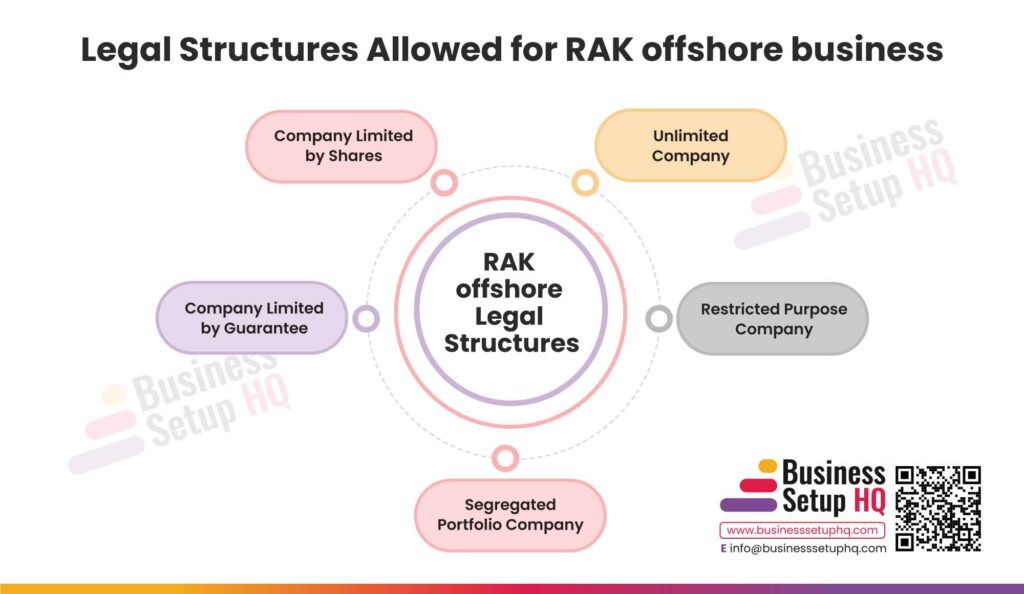Offshore Company Formation with Ongoing Compliance Management
Wiki Article
Browsing the Globe of International Company: Insights on Offshore Company Formation
Offshore Company Formation provides a critical method for global business operations. It offers notable advantages, such as tax optimization and boosted personal privacy. However, the procedure is not without its obstacles. Recognizing the complexities of different jurisdictions and regulatory needs is vital. As businesses take into consideration these alternatives, the actions included can substantially influence their long-lasting success. What are the essential factors that can bring about effective overseas management?Comprehending Offshore Companies: Meaning and Objective
Offshore companies have come to be a centerpiece in international business conversations due to their distinct lawful and monetary structures. These entities are developed in jurisdictions beyond the owner's country of residence, frequently with desirable regulatory atmospheres. Commonly, offshore business offer various objectives, such as property protection, tax obligation optimization, and enhanced personal privacy. They can operate in numerous sectors including trade, money, and innovation, supplying flexibility for worldwide operations.The defining feature of an offshore Company is its capability to conduct service globally while gaining from lowered tax obligation obligations and governing concerns. This structure interest capitalists and entrepreneurs looking for to diversify their portfolios and take care of dangers efficiently. In addition, several offshore territories provide incentives to draw in international financial investment, bring about an increase in the Formation of these companies. Understanding the definition and function of overseas business is vital for maneuvering through the complexities of worldwide commerce and funding circulation.Secret Benefits of Offshore Company Formation
The Formation of an overseas Company provides numerous compelling benefits that draw in capitalists and business owners alike. One of the key advantages is tax obligation optimization; lots of jurisdictions supply positive tax prices or exemptions, permitting businesses to optimize revenues. In addition, overseas companies usually appreciate higher confidentiality, as many territories have rigorous privacy regulations securing the identities of Company owners and shareholders.Another substantial advantage is property protection. Offshore entities can guard assets from political instability and economic downturns in the proprietor's home country. Furthermore, these firms can assist in international trade, offering very easy access to international markets and simplifying cross-border transactions.The adaptability in business framework likewise attract company owner, as overseas companies can be tailored to satisfy specific operational requirements. Generally, the calculated Formation of an overseas Company can result in improved monetary safety, operational effectiveness, and a durable worldwide visibility.
Typical Obstacles in Establishing Offshore Entities
Developing offshore entities provides numerous challenges that companies must navigate. Trick issues include regulatory compliance, which can differ considerably across territories, and the impact of cultural differences on operations. In addition, companies must consider the costs and risks associated with maintaining an offshore existence, which can impact general feasibility.Regulative Compliance Issues
Navigating regulative compliance problems postures substantial obstacles for businesses when they seek to develop offshore entities. Each territory has its own collection of regulations and regulations, which can vary commonly and might be tough to navigate. Business commonly face difficulties related to tax compliance, anti-money laundering laws, and reporting demands. Furthermore, changes in global tax obligation regulations can produce uncertainty, making it important for organizations to remain upgraded on conformity commitments. Failure to adhere to these laws can cause severe fines, including fines and reputational damages. Consequently, comprehending the lawful framework and engaging with local professionals is vital for successful overseas procedures, guaranteeing that organizations can operate within the boundaries of the law while enhancing their international approach.Cultural Differences Effect

Price Considerations and Risks
Steering via the economic landscape of overseas entity Formation offers numerous price considerations and integral threats. Preliminary setup expenses commonly consist of lawful fees, registration costs, and compliance fees, which can accumulate significantly. In addition, recurring upkeep expenditures such as annual charges and accounting solutions have to be factored in. Fluctuating governing settings in different territories pose risks, potentially leading to unanticipated expenses or lawful issues. Businesses might likewise experience challenges related to taxation, financial, and reputational problems, which can affect success and operational performance. As a result, prospective business owners need to carry out thorough due persistance and financial projecting to mitigate these risks and assure sustainable development. Understanding these expense factors to consider is important for effective overseas company ventures.Steps to Establish an Offshore Company
Developing an offshore Company entails several vital actions that require mindful consideration. Key aspects consist of guaranteeing and picking the appropriate jurisdiction conformity with neighborhood regulations, alongside collecting required documentation. Comprehending these aspects is important for a successful offshore company arrangement.Choosing the Right Territory
Picking the right jurisdiction is critical for anyone seeking to establish up an overseas Company, as it can significantly influence business's lawful commitments, tax liabilities, and operational convenience. Different elements need to be taken into consideration, consisting of the political security, regulative environment, and tax obligation motivations used by potential territories. Popular selections typically include nations with positive tax regimes, such as the British Virgin Islands or Cayman Islands, as a result of their reduced or no tax obligation prices. Furthermore, the simplicity of doing company and the track record of the territory can affect financier confidence and market accessibility. Inevitably, an educated decision based on extensive research will certainly guarantee the overseas Company is placed for long-term success and conformity with international requirements.Called For Documents and Compliance
When establishing an offshore Company, comprehending the necessary paperwork and compliance needs is crucial to guarantee a smooth process. Key records usually consist of a certificate of consolidation, a memorandum and posts of association, and proof of identity for supervisors and investors. Some territories might require additional information, such as service strategies or financial institution references. Compliance with regional legislations is essential, which often includes appointing a signed up representative and preserving a registered office. Routine coverage and adherence to tax obligation obligations should additionally be taken into consideration. Failure to conform with these needs can result in charges or also dissolution of the Company. Thorough preparation and consultation with legal experts can help browse these intricacies efficiently.Picking the Right Territory for Your Offshore Company
Exactly how can one identify the most ideal jurisdiction for an overseas Company? Choosing the right territory calls for careful factor to consider of several factors. First, the lawful and tax obligation environment plays an essential duty; territories with desirable tax obligation routines might boost organization productivity. In addition, the political stability and economic climate of a place can affect long-lasting company viability.Another crucial facet is the schedule of monetary services and banking infrastructure, which facilitate smooth procedures. Prospective company owner must additionally consider the ease of working, including the rate of registration and the quality of regulations.Furthermore, language barriers and social distinctions can impact procedures; therefore, straightening with a jurisdiction that straightens with business goals and individual comfort is important. Eventually, extensive research and specialist guidance can lead business owners in making an educated decision that lines up with their strategic goals.Compliance and Regulative Considerations

Finest Practices for Handling an Offshore Organization
Managing an overseas service requires strategic preparation and thorough implementation to maximize performance and alleviate dangers. Initially, establishing a durable conformity structure is vital to browse varying policies across jurisdictions. Regular audits and threat evaluations help determine possible vulnerabilities.Moreover, leveraging neighborhood competence with collaborations with neighborhood specialists can boost functional effectiveness and cultural understanding. Making use of modern technology, such as cloud-based monitoring systems, enhances communication and information management, making it possible for far better decision-making. Furthermore, preserving transparent financial documents and making certain prompt tax filings are vital to promote the Company's stability. Buying personnel training and growth fosters an experienced workforce, advertising technology and adaptability.Finally, developing clear performance metrics and essential performance indicators (KPIs) helps assess service development and notify tactical changes. By sticking to these best techniques, business can efficiently handle their overseas procedures, making certain long-lasting success offshore company formation and sustainability in a competitive worldwide market.Often Asked Questions
What Is the Expense of Forming an Offshore Company?
The expense of developing an offshore Company varies extensively relying on territory, lawful demands, and services needed. Normally, costs can range from a couple of hundred to numerous thousand bucks, including enrollment, conformity, and annual charges.How much time Does It Require To Develop an Offshore Entity?
The time needed to develop an offshore entity differs significantly, generally varying from a few days to numerous weeks (offshore company formation). Aspects influencing this duration consist of jurisdiction, needed documents, and the effectiveness of the provider involvedCan Individuals Kind Offshore Companies Without a Service Companion?
People can indeed create overseas companies without a company companion. Many territories allow single-member entities, equipping business owners to establish and manage their organizations independently, while still profiting from possible tax obligation benefits and lawful securities.Are There Any Kind Of Tax Obligation Benefits for Foreign Investors?

What Kind Of Services Generally Make Use Of Offshore Companies?
Offshore business are frequently used by numerous sectors, consisting of shopping, technology, and financing. These entities frequently serve functions such as property protection, tax optimization, and personal privacy, appealing to both international corporations and private business owners. Offshore companies have become a focal point in global company conversations due to their unique lawful and economic frameworks. They can run in numerous sectors consisting of trade, innovation, and finance, offering flexibility for worldwide operations.The defining characteristic of an overseas Company is its capacity to perform company globally while benefiting from decreased tax responsibilities and governing problems. Furthermore, offshore companies typically delight in higher confidentiality, as many territories have stringent privacy legislations protecting the identifications of Company owners and shareholders.Another significant benefit is property defense. These business can help with international trade, giving very easy access to global markets and streamlining cross-border transactions.The versatility in company framework likewise appeals to service owners, as overseas companies can be customized to meet details operational requirements. Choosing the ideal territory is critical for anyone looking to establish up an offshore Company, as it can substantially affect the business's legal commitments, tax liabilities, and operational convenience.Report this wiki page